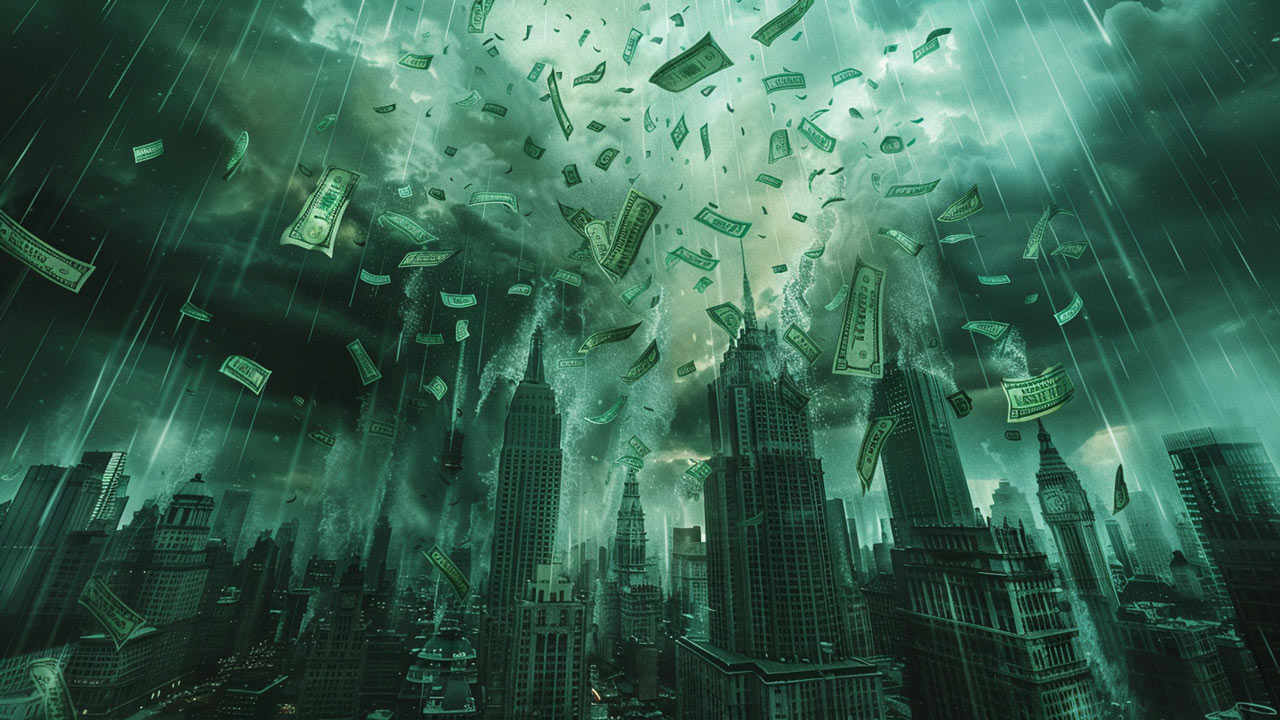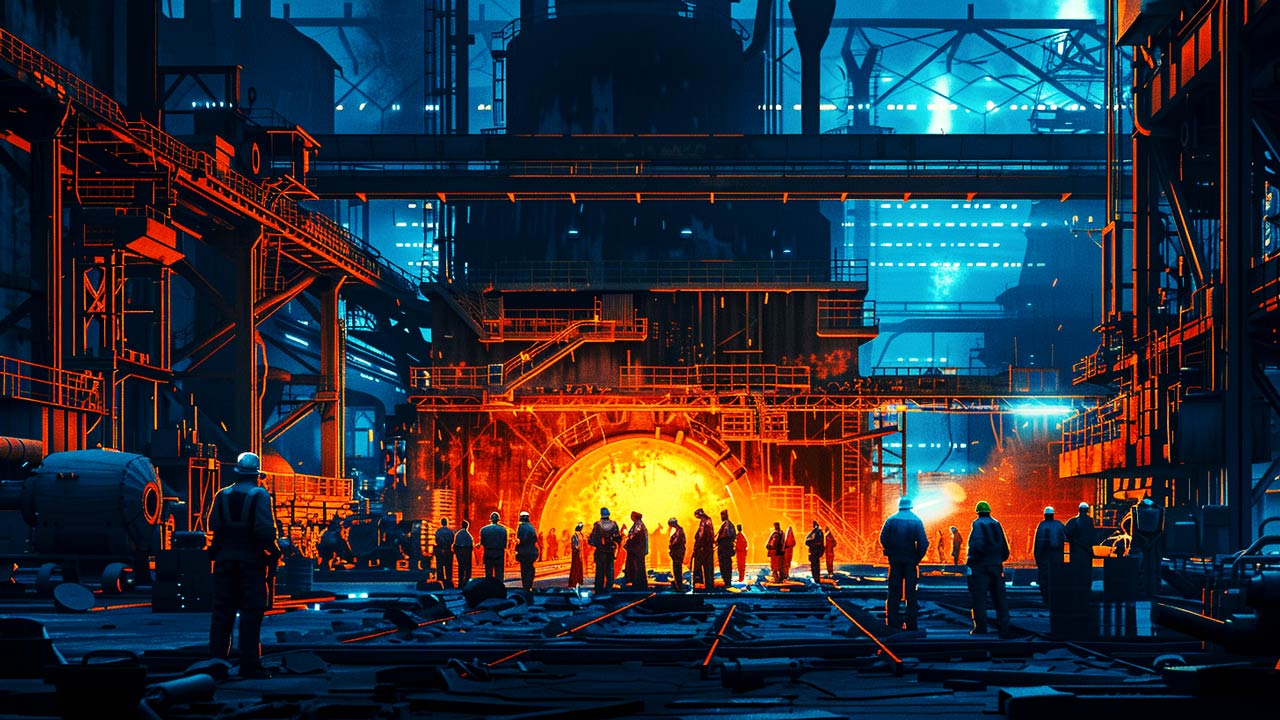Biden Blames Retailers for Inflation Created by his Policies
On Super Bowl Sunday, President Biden took to X (formerly Twitter) to skewer consumer brands for “shrinkflation,” a phenomenon where product vendors reduce package sizes without proportionally reducing price, in what essentially amounts to a per unit cost increase for consumers. The video explicitly calls out popular snack brands such as Breyers, Gatorade, and Tostitos— all food products that are likely on the top of consumers’ minds when thinking of inflation.
Biden wasn’t alone. Senator Elizabeth Warren continued Biden’s train of thought the following day and even anticipated counterarguments blaming monetary policy for shrinkflation:
“And by the way: we’re not buying the big corporations’ excuse that shrinkflation is all about INflation (sic), because we’ve seen how corporate profits surged by 75% in the past few years, outrunning inflation by miles.”
Warren’s perspective is nothing more than semantic misdirection. Shrinkflation and inflation are two sides of a coin. Both are manifestations of the same problem: artificial increases in the money supply at the hands of central bankers. Knowingly or not, both Biden and Warren are shifting the blame for inflation from the Federal Reserve System and the politicians it serves to private companies.
To see this, it may be helpful to briefly cover historical conceptions of inflation and how they’ve changed to accommodate an inflationary economy.
In the early 20th century, when the dollar was at least partially backed by gold, the term “inflation” referred to changes in the money supply in excess of changes in the physical supply of gold. This is the definition economist Ludwig von Mises had in mind when he wrote “Inflation: An Unworkable Fiscal Policy:”
“Inflation, as this term was always used everywhere and especially in this country, means increasing the quantity of money and bank notes in circulation and the number of bank deposits subject to check.“
The practice of fractional reserve banking, in which private banks lend money in excess of their gold reserves, could theoretically contribute to inflation in this sense, but the typical source of this kind of inflation was exorbitant government debt and money printing.
In the following decades, “inflation” came to take on a different, seemingly innocuous meaning. Instead of “inflation” referring to an increase in the money supply, it now refers to a general increase in prices. With this change came the political practice of blaming private companies and individuals for causing inflation. After all, they are the ones who physically change prices on the shelf. Who else could be at fault?
In moving away from the original definition of inflation, the government benefits by associating price increases with the companies and people who implement them. Only under the modern definition is it possible to blame inflation on “corporate greed,” as Warren does.
By now focusing on “shrinkflation” (as opposed to explicit price increases), Warren and her ilk confuse the issue even more and move public attention one step further away from the true source of inflation. Inflationist politicians want consumers to blame 1) retailers, who are mechanically responsible for price increases (i.e. they change the price in-store), and 2) product manufacturers or vendors, who are responsible for changing package sizes.
Under its modern definition, inflation and shrinkflation are not categorically different. Both refer to price increases; both are at least partially accounted for in major inflation metrics; and both result from expansionary monetary policy, which President Biden, Senator Warren, and the Federal Government have pushed for decades.
The Biden administration benefits from this semantic game insofar as it leads U.S. citizens to misunderstand money and inflation. Mises again explains:
“The result of this deplorable confusion is that there is no term left to signify the cause of this rise in prices and wages. There is no longer any word available to signify the phenomenon that has been, up to now, called inflation. It follows that nobody cares about inflation in the traditional sense of the term. As you cannot talk about something that has no name, you cannot fight it. Those who pretend to fight inflation are only fighting what is the inevitable consequence of inflation, rising prices. Their ventures are doomed to failure because they do not attack the root of the evil. They try to keep prices low while firmly committed to a policy of increasing the quantity of money that must necessarily make them soar.”
The original definition of “inflation” is likely too far gone to recover, although some economists contrast “monetary inflation” (an increase in the money supply) with “price inflation” (a general increase in prices). This distinction is crucial in the pursuit of sound money, and everyday Americans— especially sound money advocates— must keep it in mind to counteract the false narrative being pushed by Biden, Warren, and the like.





 In 2009, 140 banks failed, and a recent report from financial consulting firm Klaros Group says that hundreds of banks are at risk of going under this year. It’s being billed mostly as a danger for individuals and communities than for the broader economy, but for stressed lenders across America, a string of small bank failures could quite […]
In 2009, 140 banks failed, and a recent report from financial consulting firm Klaros Group says that hundreds of banks are at risk of going under this year. It’s being billed mostly as a danger for individuals and communities than for the broader economy, but for stressed lenders across America, a string of small bank failures could quite […] Cocoa prices have dumped since rocketing to a dramatic peak last month as an El Nino cycle winds down and traders rush out of the illiquid market. For now, depreciating fiat currencies are still keeping the cocoa price still far above its 2023 levels. Coffee has had a similar rise and subsequent correction — but now, inflation and other factors are conspiring to […]
Cocoa prices have dumped since rocketing to a dramatic peak last month as an El Nino cycle winds down and traders rush out of the illiquid market. For now, depreciating fiat currencies are still keeping the cocoa price still far above its 2023 levels. Coffee has had a similar rise and subsequent correction — but now, inflation and other factors are conspiring to […] California’s government bet that they knew better than the free market. And now millions are paying the price. The story begins in 1919, when the city of Berkley, California instituted legislation setting aside districts that would only allow the construction of single-family housing. The idea spread, and soon much of California’s urban areas had adopted the zoning policy. Today, approximately 40% of the total land in Los Angeles is […]
California’s government bet that they knew better than the free market. And now millions are paying the price. The story begins in 1919, when the city of Berkley, California instituted legislation setting aside districts that would only allow the construction of single-family housing. The idea spread, and soon much of California’s urban areas had adopted the zoning policy. Today, approximately 40% of the total land in Los Angeles is […] The yen was once known as a safe-haven currency for investors to protect themselves when broader markets are shaky or other currencies are dropping, but those days are numbered. A stable government and consistent (and low) interest rates have been some of the driving factors, but it’s the unwinding of that ultra-low interest rate policy that will be the yen’s “safe […]
The yen was once known as a safe-haven currency for investors to protect themselves when broader markets are shaky or other currencies are dropping, but those days are numbered. A stable government and consistent (and low) interest rates have been some of the driving factors, but it’s the unwinding of that ultra-low interest rate policy that will be the yen’s “safe […] Whenever an election year rolls around, domestic manufacturing becomes a more central theme of discussion. Candidates from both sides, who seem to disagree on almost everything else, never waver in their commitment to auto manufacturers in Detroit and the steel industry. Republicans and Democrats never forget to remind the American public that they will try […]
Whenever an election year rolls around, domestic manufacturing becomes a more central theme of discussion. Candidates from both sides, who seem to disagree on almost everything else, never waver in their commitment to auto manufacturers in Detroit and the steel industry. Republicans and Democrats never forget to remind the American public that they will try […]